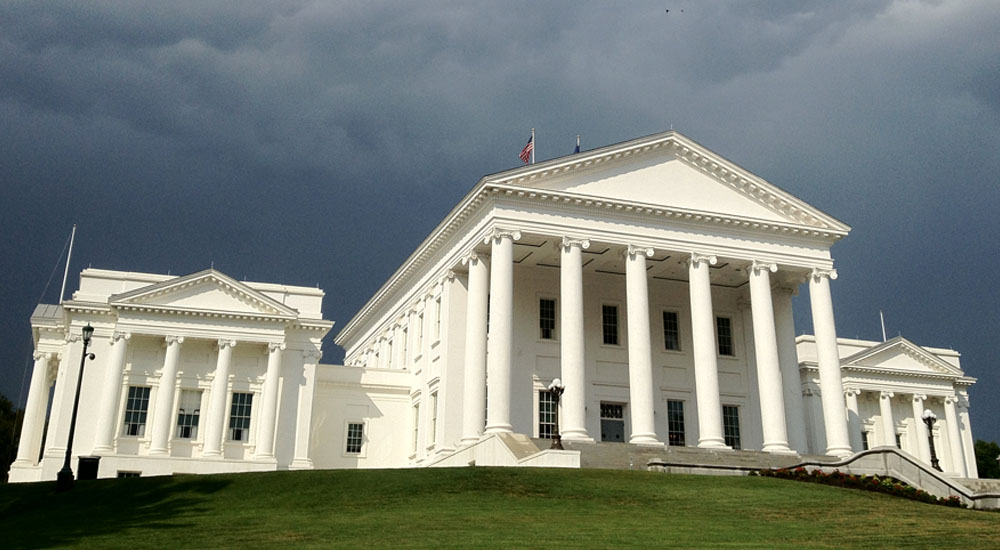Whether it is because of 2024 or in spite of the upcoming federal elections, Richmond doesn’t appear to be on the cusp of any major fisticuffs going into next week’s kickoff.
Despite the Governor’s Budget being revealed with tremendous fanfare, the Democratic-controlled General Assembly doesn’t have to work from that budget schematic at all. House and Senate Democrats have already signaled — if the words “slap in the face” are at all the definition of signaling — that they will have very different priorities moving into the biennial budget.
Top of the list? A move toward a $15 minimum wage seems to have ironclad Democratic support. Some form of childcare package which will replace the loss of federal funding is in the mix, though its final form will be subject to the form rather than the substance. Some tinkering with Virginia’s marijuana laws might be on the table. Some sort of handshake agreement on games of chance — those slot machines you used to see in gas stations and the like — might be in the works as well.
The real contest might be a fiscal one, where Youngkin’s proposal to offset an income tax cut with a sales tax hike floated like a lead balloon among Democrats and Republicans alike. From Dave Ress over at the RTD:
In his proposed two-year budget for July 1, 2024, through June 30, 2026, Youngkin is again seeking income tax rate cuts in what he calls his “unleashing opportunity budget,” but he is also proposing an increase in the sales tax rate, and talking about levying it on a wide range of digital sales, including streaming services and digital downloads.
That combination of the proposed increase and the wider application would translate to a $723.5 million increase in what shoppers pay over the 12 months beginning July 1 and $1.8 billion the following year — a total more than offset by the $1.1 billion they save from income tax rate cuts next year and $2.3 billion the year after that.
“I don’t like it,” said state Sen. Mamie Locke, D-Hampton, a senior member of the Senate Finance Committee. “Sales taxes are regressive; they hit poor people harder.”
While there is talk about eliminating the car tax, three obstacles remain in the way. First and foremost is the funding mechanism which reimburses localities for personal property tax revenue. Will it remain in place with the dial wound down to zero? Or if truly eliminated, what funding mechanism will replace the old?
Second, if the intention is to shift funding away from personal property and income and towards sales taxes, the immediate boost from revenue during good economic times is a quick stimulant — but during economic downturns the inevitable turn towards more stable-if-regressive forms of tax revenue (personal property) may prove irresistible, saddling taxpayers with renewed personal property and income taxes as well as high sales tax rates.
Third, Senator Locke (D-Hampton) is 100% correct about the regressive nature of sales taxes on the working poor. For those who have disposable income, the idea of paying more for basic goods and services may not seem like a terrible imposition. Yet for those who are scraping by paycheck to paycheck? Raising Virginia’s sales tax at 5.3% to 6.2% so that the burden of government could fall even harder on working class families isn’t precisely what Republicans campaigned on in 2021.
To make matters slightly less appealing, local governments are going to feel the lack of resources from Washington in an even more direct way. With a handful of tools to close that gap — real estate property taxes, personal property taxes, machinery and tools taxes — there are only so many data centers one can build.
Stack onto it the fact that meals taxes — some of which are as high as 6% — now put families in the condition of paying 20% inflation with a 12% sales tax on top and being expected to leave behind a 20% tip.
Of course, the Rich Men North of Richmond can afford such luxuries while watching sports at a proposed taxpayer-financed $1.5 billion facility. That might make sense to Rockefeller Republicans who can afford such luxuries, but for the party of the working class most of them are just trying to make rent.
Let’s be honest though.
No conservative is going to storm the Bastille for a tax hike on working class families — least of all one championed by a Republican governor.
Thankfully, most of 2024 is going to consist of shaping the narratives for federal elections — the White House of course (as co-ordinated by the national parties) — but also the pivotal Virginia races in VA-02, VA-10, and a wide open VA-07 with Rep. Abigail Spanberger’s entry into the 2025 gubernatorial race. Bonus round? The 2026 U.S. Senate nod against Senator Mark Warner (D-Virginia), should national VP aspirations fail to materialize in the Governor’s Mansion.
Wheels within wheels, one supposes. For taxpayers, they just wish it didn’t look so much like the bus they keep getting thrown under.

